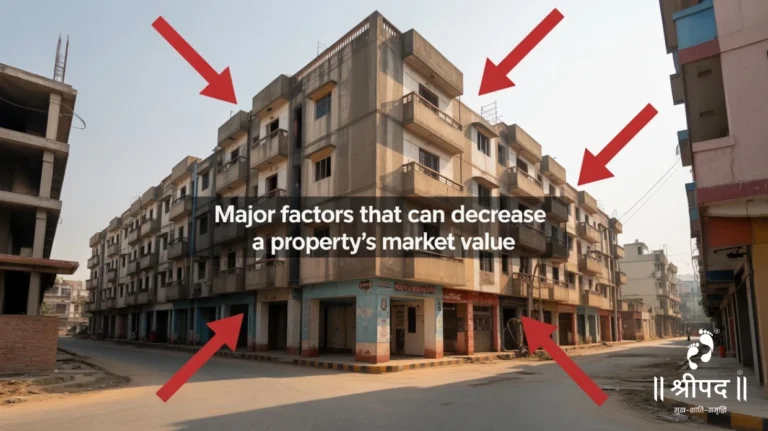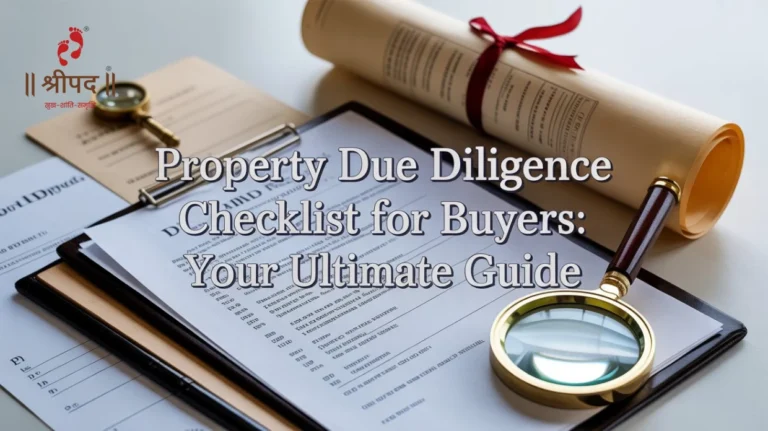- SHREEPAD GROUP
-
+91 83476 68000

Purchasing a home or investing in property is a major financial step—one that requires careful decision-making, especially when it comes to selecting a property developer. In Surat, a rapidly growing real estate hub, it’s important to avoid costly mistakes by choosing the right builder. If you’re unsure where to begin, understanding how to select the ideal real estate developer in Surat and the essential questions to ask a property developer can offer a helpful framework before diving into the process. This guide outlines some of the most important warning signs or “red flags” you should recognize before committing to a real estate property developer.
Vague or Unclear Contracts
One of the earliest warning signs of a questionable developer is a contract that lacks transparency. Any professional developer should provide detailed agreements that include payment schedules, possession timelines, and terms related to project delays. If you’re offered a generic or confusing agreement, that’s a signal to pause and evaluate further.
History of Delays and Missed Deadlines
Consistent delays in completing projects are a strong indicator of a developer’s unreliability. Always research the builder’s previous projects to check if they delivered on time. If delays appear to be a pattern, it may reflect poor management, underfunding, or lack of commitment.
Negative Reviews and Poor Word-of-Mouth
In today’s digital age, you can learn a lot from online reviews, discussion forums, and customer feedback. A large number of complaints or poor ratings should not be taken lightly. These often point to issues such as inferior quality, delayed possession, or post-sale service problems.
Financial Instability
Financial instability in a developer can derail a project completely. It’s important to verify whether the builder has strong financial backing. Developers with uncertain or undisclosed funding sources may struggle to see a project through to completion.
Questionable Build Quality in Past Projects
Before you sign any agreements, try to visit one or more completed projects by the developer. Check construction quality, finish, infrastructure, and amenities. Cracks in walls, poor paintwork, or substandard fixtures could indicate that the developer compromises on quality.
Lack of Legal Compliance
A trustworthy developer will always adhere to local building laws and possess all the required licenses and approvals—like environmental clearance, land ownership proof, and RERA registration. Failure to provide these could land you in legal trouble down the road.
Unrealistic Promises
If a developer offers you luxury amenities at unbelievably low prices or commits to a highly aggressive delivery schedule, it’s time to raise questions. Unrealistic promises are often a tactic used to lure customers and rarely reflect the reality of the final product.
Misleading Marketing Tactics
Attractive brochures, 3D walkthroughs, and eye-catching offers are commonly used to entice buyers. However, if your site visit reveals a completely different picture, you’re likely dealing with a deceptive developer. Always validate claims with on-ground verification.
Double Selling of Property Units
In rare but serious cases, fraudulent developers have sold the same apartment to multiple buyers. This is not just unethical but illegal and leads to lengthy court battles. Always ensure the property title is clear and ask for a sale agreement to be executed quickly after booking.
Delay or Non-Completion of Promised Amenities
It’s common for developers to promise amenities like clubhouses, swimming pools, or landscaped gardens. But in many cases, these amenities are either delayed or never delivered. Check existing customer reviews and visit other completed projects by the same developer for verification.
Hidden Costs and Undisclosed Charges
A seemingly affordable property can quickly become expensive if you’re not careful about hidden charges. Look out for extra fees for amenities, parking, legal processing, or club memberships. Read every clause in the agreement and get a detailed price breakdown.
Overhyped Return on Investment Claims
Some builders attract investors with the promise of guaranteed rental income or high appreciation rates. While real estate is generally a good investment, these “guarantees” are often exaggerated. Always do your own research and consult a financial advisor if needed.
Concealed Legal Disputes
Developers who fail to disclose property-related legal issues, land disputes, or unresolved litigations should be avoided. You can perform due diligence by hiring a real estate lawyer to conduct a title search and check for any encumbrances on the property.
Missing or Incomplete Documentation
Documentation is the backbone of a real estate transaction. Ensure the builder has all necessary paperwork such as commencement certificates, occupancy certificates, approved plans, and land titles. Absence of any of these could mean trouble in the future.
Poor Communication and Lack of Updates
Professionalism matters. If the developer avoids answering your questions, fails to respond in time, or provides inconsistent updates, it may reflect their attitude post-sale too. You want a developer who communicates proactively and is transparent at every stage of the project.
Final Thoughts
Choosing the right property developer is paramount to ensuring a successful and hassle-free real estate investment. By being aware of these common red flags, you can make an informed decision and avoid potential pitfalls. If you’re looking for a reputable and trustworthy real estate property developer in Surat, consider partnering with Shreepad Group. With a proven track record of delivering quality projects on time and a commitment to transparency, Shreepad Group stands out as a reliable choice for your real estate needs.
See Related News & Insights Blog

09.10.2025
How to Select the Right Property Type to Suit Your Needs
Purchasing a property is one of the most important financial decisions you can make. Whether it’s your first home, an...

09.10.2025
Essential Tips for Investing in a Growing Real Estate Market
Investing in real estate can be one of the smartest financial decisions when approached with knowledge and strategy. A thriving...

09.10.2025
Major Factors That Can Decrease a Property’s Market Value
In the real estate world, property value is more than just a number — it reflects the strength of your...

09.10.2025
Property Due Diligence Checklist for Buyers: Your Ultimate Guide
Purchasing a property is one of the biggest investments in life. Whether it’s a residential apartment, a commercial space, or...
